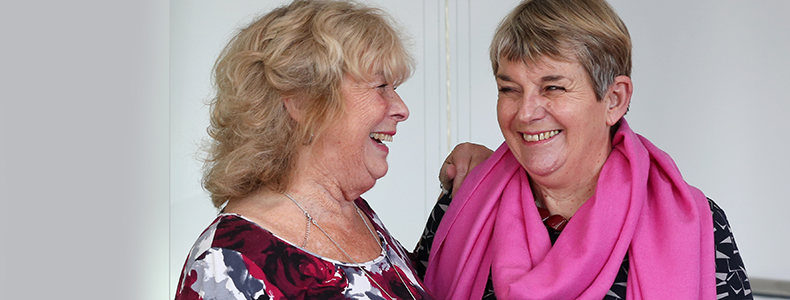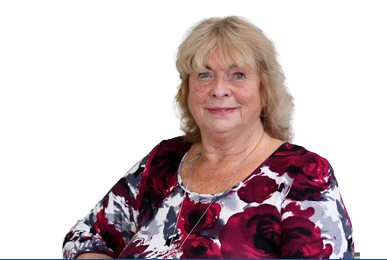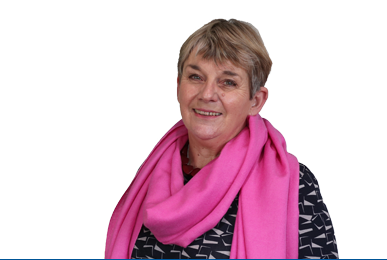
Beating dementia together
Two women, two life experiences, brought together by a passion to change the future of dementia research – volunteers Kate Hodgett and Maureen Godfrey are determined to make a difference.
Maureen (American Studies, 1984) cared for her late mother who had dementia, a disease now also afflicting her mother-in-law. Kate spent seven years caring for her late husband Derek and now runs a variety of dementia support groups.
For the last few years, both have been leading lights on the Dementia, Older People and Palliative Care patient and public involvement (PPI) group – bringing first-hand knowledge and a human touch to research projects aimed at improving the lives of those with dementia and their carers. For this vital work, they received Longstanding Volunteer Awards from the University.
 Maureen’s story
Maureen’s story
“Sometimes in life, circumstances land you in a position where you never thought you’d be. My Nottingham degree changed my life and now dementia is changing it again in a truly remarkable way.
“I didn’t continue on to a master’s at the University because I had to go to work. I feel quite sad about that because since I’ve been volunteering, I’ve realised how much I absolutely love academia. What I’m doing now is enabling me to give back to Nottingham, but the process of volunteering is also giving me far more than I am putting in to it. It’s enabling me, together with our PPI group members, to realise our talents and put them to good use to help wider society.
“We’re raising awareness of the context in which people with dementia and their carers live. Researchers have an idea or a proposal which looks good on paper and could indeed be valuable, but when they come to the group we’re able to offer them a different perspective that perhaps they haven’t experienced or felt necessary to take on board.
“In terms of the science I’m a lay person but I’ve spent eight years as a co-applicant and collaborator on dementia research studies, reading papers, commenting on protocols and helping write a variety of patient-facing material. I see our group’s work as investing in the future through research. We’re giving our lived experience.”
 Kate’s story
Kate’s story
“Looking after Derek was the most heart breaking thing I’ve ever had to do. The last couple of years were extremely hard and after he died, I told friends and family that I would spend the rest of my life giving back to dementia and Alzheimer’s support.
“Through my dementia groups, I’ve got to know many people with dementia, and sadly I’ve seen many of them die, but I know that I can support them and their carers through this incredibly difficult stage in life because I’ve been there already.
“Derek was a valued member of the PPI group because he had dementia and it was important for us both to help researchers to better understand what it’s like living with the disease.
“I believe ‘there but for the grace of god go I’ because one day this could be happening to Maureen or myself. If what we’re doing can help the advancement of research into dementia and help make it more effective, then I’m very happy. Volunteering gives my life meaning, it makes me want to get up in the morning and I really enjoy it.”
---
You may also be interested in:
How your time has made a difference - thank you to our volunteers
Over 1,000 students have benefitted from our volunteers' experience in the last year alone. Find out how three volunteers are making a difference. Read more on Medium.
The people behind the papers
Meet six researchers who work tirelessly behind the scenes to create a brighter future for children with brain tumours.
Living with 'scanxiety'
In the four years that he lived with a brain tumour, Sam White endured more than 25 distressing scans. His parent's Mike and Pam share how Sam's experience is helping transform the process for children today.